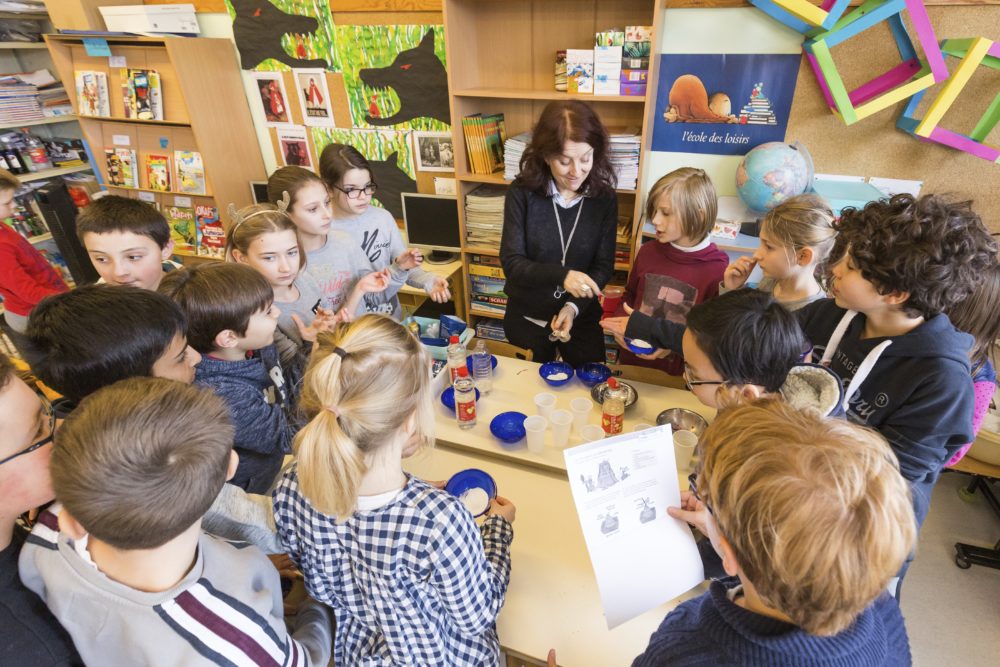Image Source: Google
Primary school is an exciting time for both children and parents. It marks the beginning of a formal education journey that lays the foundation for future learning and development. Navigating through primary school can be a rewarding experience, but it also comes with its own set of challenges.
From learning the basics of reading and writing to mastering math skills, there are many milestones to achieve along the way. This article will guide you through the various aspects of navigating the journey through primary school. If you are looking for the best middle school then explore this link.
The Early Years: Building a Strong Foundation
Primary school typically begins with kindergarten or reception classes, where children are introduced to the basics of education in a fun and interactive way. These early years are crucial for building a strong foundation for future learning. Here are some key points to consider during the early years of primary school:
Key Points:
- Focus on developing basic literacy skills such as letter recognition, phonics, and vocabulary building.
- Encourage a love for reading by introducing children to a variety of books and stories.
- Provide opportunities for hands-on learning experiences to help children explore and discover the world around them.
- Support social and emotional development through activities that promote teamwork, empathy, and self-expression.
Academic Progress: Mastering the Fundamentals
As children progress through primary school, they will begin to delve deeper into academic subjects such as math, science, and languages. Mastering the fundamentals of these subjects is essential for building a strong academic foundation. Here are some tips for supporting your child's academic progress:
Tips for Academic Progress:
- Establish a regular study routine and create a designated study space free from distractions.
- Work closely with teachers to identify areas of strength and areas that need improvement.
- Encourage curiosity and critical thinking by asking open-ended questions and fostering a love for learning.
- Provide resources and support at home to reinforce classroom learning, such as practicing math problems or reading together.
Social Development: Nurturing Relationships and Skills
Primary school is not just about academic success; it is also a time for children to develop social skills, build friendships, and learn how to navigate relationships. Nurturing social development is essential for helping children thrive both inside and outside the classroom. Here are some ways to support your child's social development:
Ways to Support Social Development:
- Encourage positive social interactions by teaching empathy, kindness, and respect for others.
- Help children develop problem-solving skills and conflict resolution strategies to handle interpersonal conflicts.
- Provide opportunities for extracurricular activities such as sports, arts, or clubs to help children explore their interests and talents.
- Teach children the importance of teamwork and collaboration through group projects and activities.
Wellness and Balance: Taking Care of Mind and Body
As children progress through primary school, it is important to prioritize their wellness and maintain a balance between academic demands and personal well-being. Taking care of both the mind and body is essential for overall success and happiness. Here are some strategies for promoting wellness and balance:
Strategies for Wellness and Balance:
- Encourage healthy eating habits and regular physical activity to support physical health and well-being.
- Teach children the importance of self-care practices such as mindfulness, relaxation, and stress management techniques.
- Establish a healthy sleep routine to ensure children are well-rested and ready to tackle each day with energy and focus.
- Promote open communication and create a safe space for children to express their thoughts, feelings, and concerns.
Parental Involvement: Partnering with Schools for Success
Parental involvement plays a crucial role in supporting a child's education and overall development. By partnering with schools and educators, parents can help create a positive and supportive learning environment for children. Here are some ways parents can get involved in their child's primary school journey:
Ways to Get Involved:
- Attend parent-teacher meetings and stay informed about your child's progress, challenges, and achievements.
- Volunteer at school events, participate in parent-teacher associations, or join school committees to contribute to the school community.
- Support homework and study routines at home by providing guidance, encouragement, and resources when needed.
- Stay connected with teachers and communicate regularly to address any concerns or questions about your child's education.

